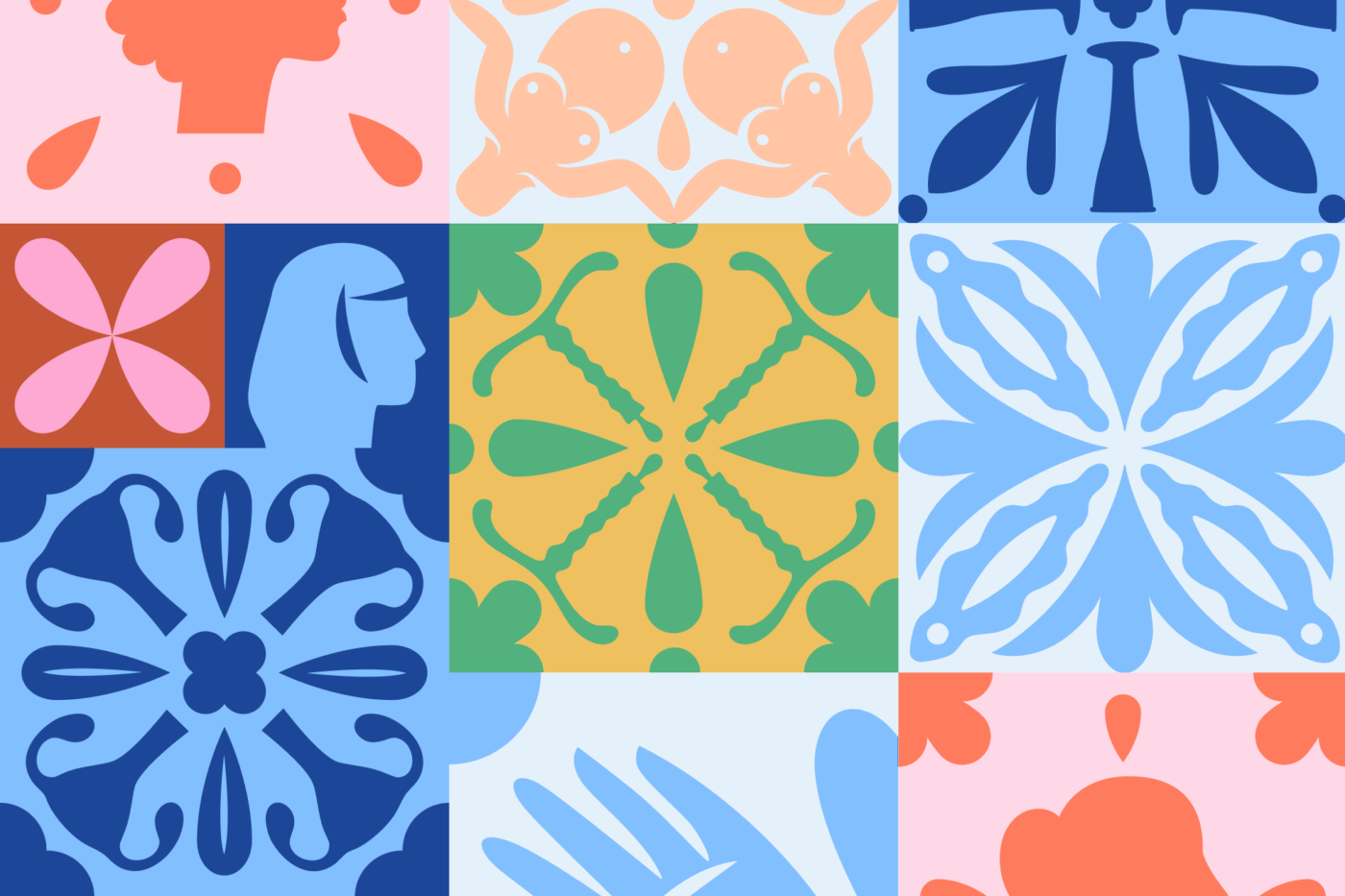FIGO 2025: Highlights from Cape Town
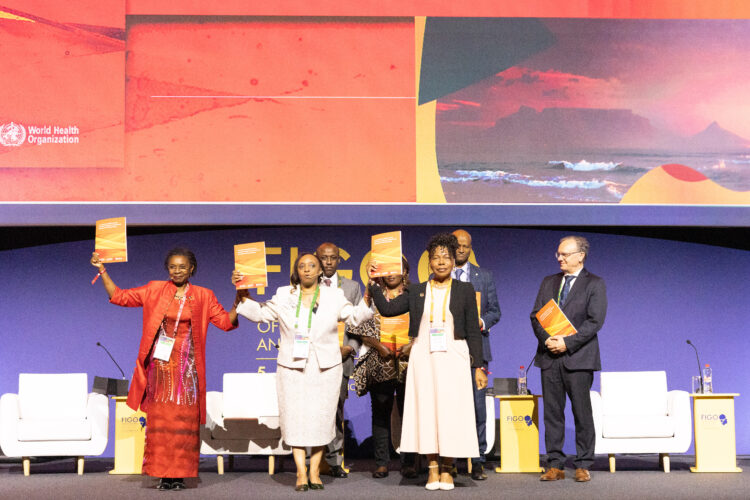
In October, ICM participated in the XXV FIGO World Congress of Gynaecology and Obstetrics, with a focus on PPH guidance, interprofessional collaboration, and field visits, a global gathering of leaders, innovators, and changemakers in Cape Town, South Africa. Engaging and learning alongside obstetricians and gynaecologists from around the world provided an excellent opportunity to strengthen collaboration between midwives and obstetricians through ICM and FIGO.
Ending Postpartum Haemorrhage
The FIGO Congress officially opened with an inspiring President’s Session on postpartum haemorrhage (PPH), with a panel that included ICM Chief Midwife Jacqueline Dunkley-Bent, co-chaired by the outgoing FIGO President Anne Kihara and incoming FIGO President (named during the Congress) Frank Louwen. Bringing together leading voices in maternal and newborn health, the panel session showcased the newly launched FIGO, ICM, WHO Consolidated PPH Guidelines new global resource co-designed by midwives and obstetricians to help prevent one of the leading causes of maternal death.
Ahead of the opening, the Pre-Congress workshops offered an excellent warm-up to the main events. Jacqueline Dunkley-Bent, ICM’s Chief Midwife, had the privilege of contributing to the WHO “Bleeding after Birth: Prevention, Diagnosis, and Treatment of PPH Champion Development” workshop. This course is designed to reduce deaths caused by postpartum haemorrhage (PPH) by building the capacity of the entire team of providers who care for women during childbirth. Participants appreciated the hands-on approach, and by the end of the session, they were fully equipped to deliver training using the new PPH module and to plan for cascade training within their own institutions.
Outgoing FIGO President Anne Kihara and ICM Chief Midwife collaborated closely as they continued their efforts to raise awareness about PPH and the Consolidated Global Guidance. Together, they co-chaired a session about the Tools for the Prevention, Diagnosis, and Treatment of Postpartum Haemorrhage: Ending the Geography of Risk. The session aimed to accelerate the adoption of life-saving interventions to reduce maternal deaths from PPH worldwide. Among the key presentations was the Bleeding After Birth (BAB) Training Toolkit, a practical, hands-on resource designed to help translate the new guidelines into effective clinical practice.
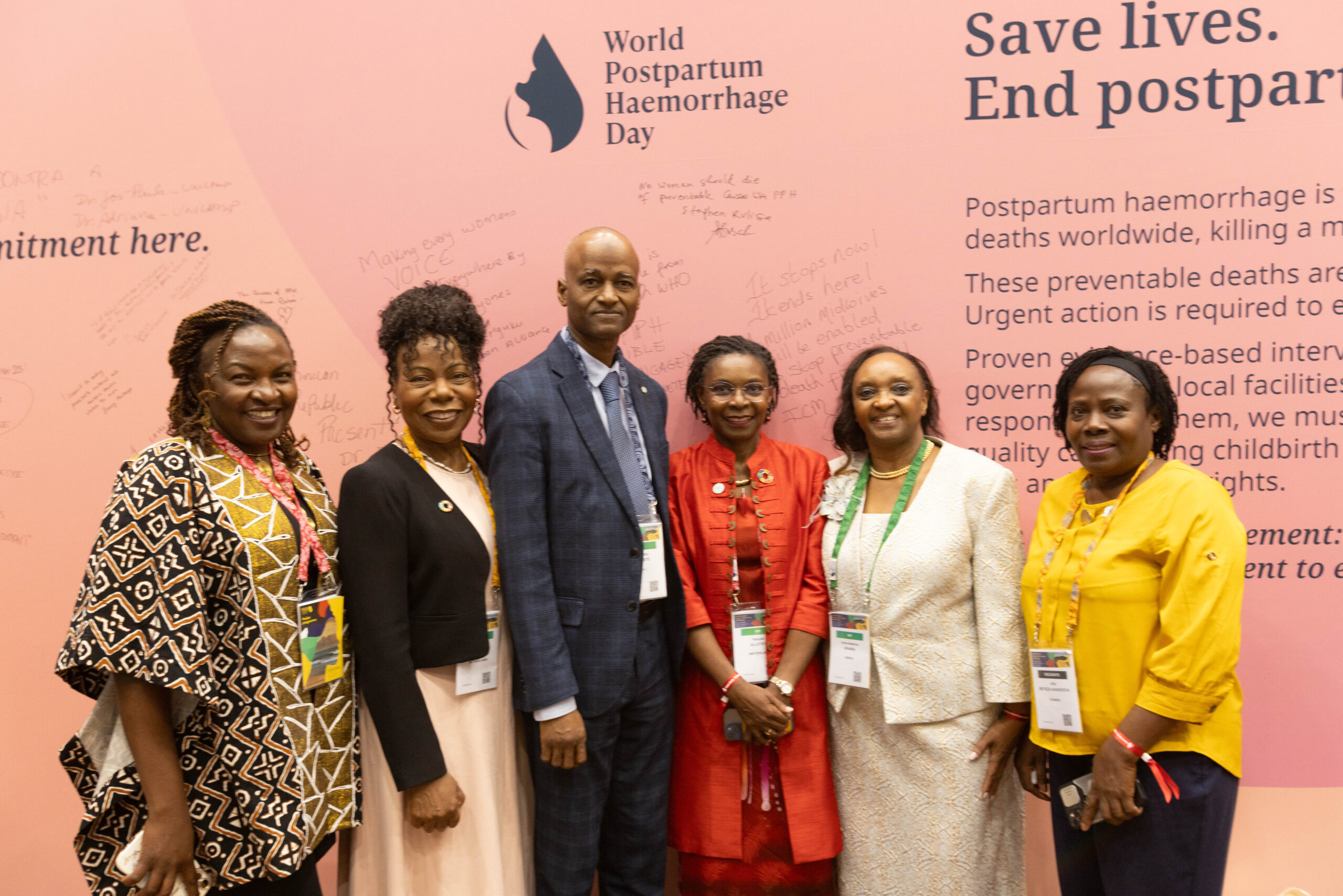
Interprofessional Collaboration
A powerful session was chaired by ICM President Sandra Oyarzo Torres, What Obstetricians and Midwives Can Achieve Together Through a Positive and Balanced Collaboration. The panel featured ICM Chief Executive Anna af Ugglas, incoming FIGO President (named during the Congress) Frank Louwen, Professor of midwifery Doreen Kainyu Kaura and Professor of obstetrics Stephen Rulisa. The session explored the benefits, challenges, solutions, and best practices for strengthening collaboration between midwives and obstetricians to provide high-quality, respectful care for women and newborns during pregnancy, childbirth, and the postnatal period.
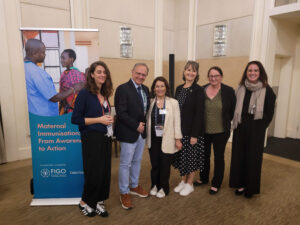 ICM Chief Executive, Anna af Ugglas, was also a panellist at the Interprofessional Collaboration Symposium, jointly organised by UNFPA, FIGO, Jhpiego, PMNCH, and AlignMNH. Effective interprofessional collaboration among healthcare providers is essential to achieving optimal maternal and newborn health outcomes and ensuring high-quality, person-centred care. Such collaboration enhances efficiency, reduces complications and unnecessary interventions, shortens hospital stays, lowers healthcare costs, and builds trust within health systems. Conversely, a lack of collaboration can result in communication breakdowns, duplicated efforts, a demotivated workforce, and compromised patient safety. During the session, the ICM Chief Executive shared how ICM is addressing these challenges, outlining the Confederation’s strategies for fostering collaboration and the key actions needed from professional bodies and policymakers to make meaningful, sustained progress.
ICM Chief Executive, Anna af Ugglas, was also a panellist at the Interprofessional Collaboration Symposium, jointly organised by UNFPA, FIGO, Jhpiego, PMNCH, and AlignMNH. Effective interprofessional collaboration among healthcare providers is essential to achieving optimal maternal and newborn health outcomes and ensuring high-quality, person-centred care. Such collaboration enhances efficiency, reduces complications and unnecessary interventions, shortens hospital stays, lowers healthcare costs, and builds trust within health systems. Conversely, a lack of collaboration can result in communication breakdowns, duplicated efforts, a demotivated workforce, and compromised patient safety. During the session, the ICM Chief Executive shared how ICM is addressing these challenges, outlining the Confederation’s strategies for fostering collaboration and the key actions needed from professional bodies and policymakers to make meaningful, sustained progress.
Reducing Unnecessary Caesarean Sections
Members of ICM leadership also participated in other important sessions, including Enhancing Labour Practices and Reducing Unnecessary Caesarean Sections, hosted by the Asia and Oceania Federation of Obstetrics and Gynaecology (AOFOG). This session brought together regional and international experts to address one of the most pressing challenges in maternal care—ensuring safe, evidence-based labour practices while reducing unnecessary caesarean births. Presentations covered topics such as WHO Recommendations for Intrapartum Care for a Positive Childbirth Experience, Strategies to Reduce Caesarean Sections During Labour, and The Controversy of Caesarean Rates.
Evidence-Based Approaches to Address FGM
One particularly powerful session in which the ICM Chief Executive participated was Medicalisation of Female Genital Mutilation/Cutting (FGM/C) with a focus on the role of healthcare professionals on South and South-East Asia. Her contribution included concrete actions that ICM is taking to empower midwives with the skills and authority to lead community-level advocacy against FGM. She also highlighted upcoming educational initiatives, including webinars designed to equip midwives with evidence-based approaches to address FGM.
A moment to reflect
“Our Congress experience was rich with sharing, learning, and contributing to critical discussions aimed at preventing harm.” — Jacqueline Dunkley-Bent.
The Congress concluded with an exceptional Closing Ceremony, celebrating the achievements, collaborations, and insights of FIGO Cape Town 2025. It was a moment to reflect on collective accomplishments, hear from the global community dedicated to advancing women’s health, and look forward to continued collaboration between ICM and FIGO under the leadership of the new FIGO President Frank Louwen. Thank you to outgoing FIGO President Professor Anne Kihara and incoming FIGO President Frank Louwen for your leadership and commitment to women’s health and interprofessional collaboration between midwives and obstetricians. We salute you!
Visiting a midwife-led birth centre and educational institution
Once the Congress had ended, the ICM team had the opportunity to visit the Elsie’s Midwife-Led Birth Centre and the University of the Western Cape. It was a pleasure to learn and share with the dedicated midwives there and to spend time with a new mother who had recently given birth. A heartfelt thank you to all the staff at Elsie’s for the phenomenal work you are doing, and congratulations to the University team for their commitment to providing high-quality midwifery education. These visits reinforced the themes of PPH readiness, interprofessional collaboration, and midwifery education highlighted throughout the Congress.
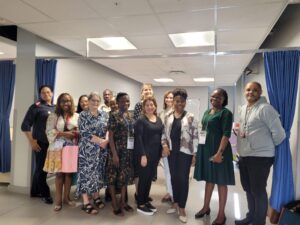
The world needs One Million More Midwives
Sign the petition and help us collect one million signatures to demand one million more midwives — and the investments needed to make it happen.
